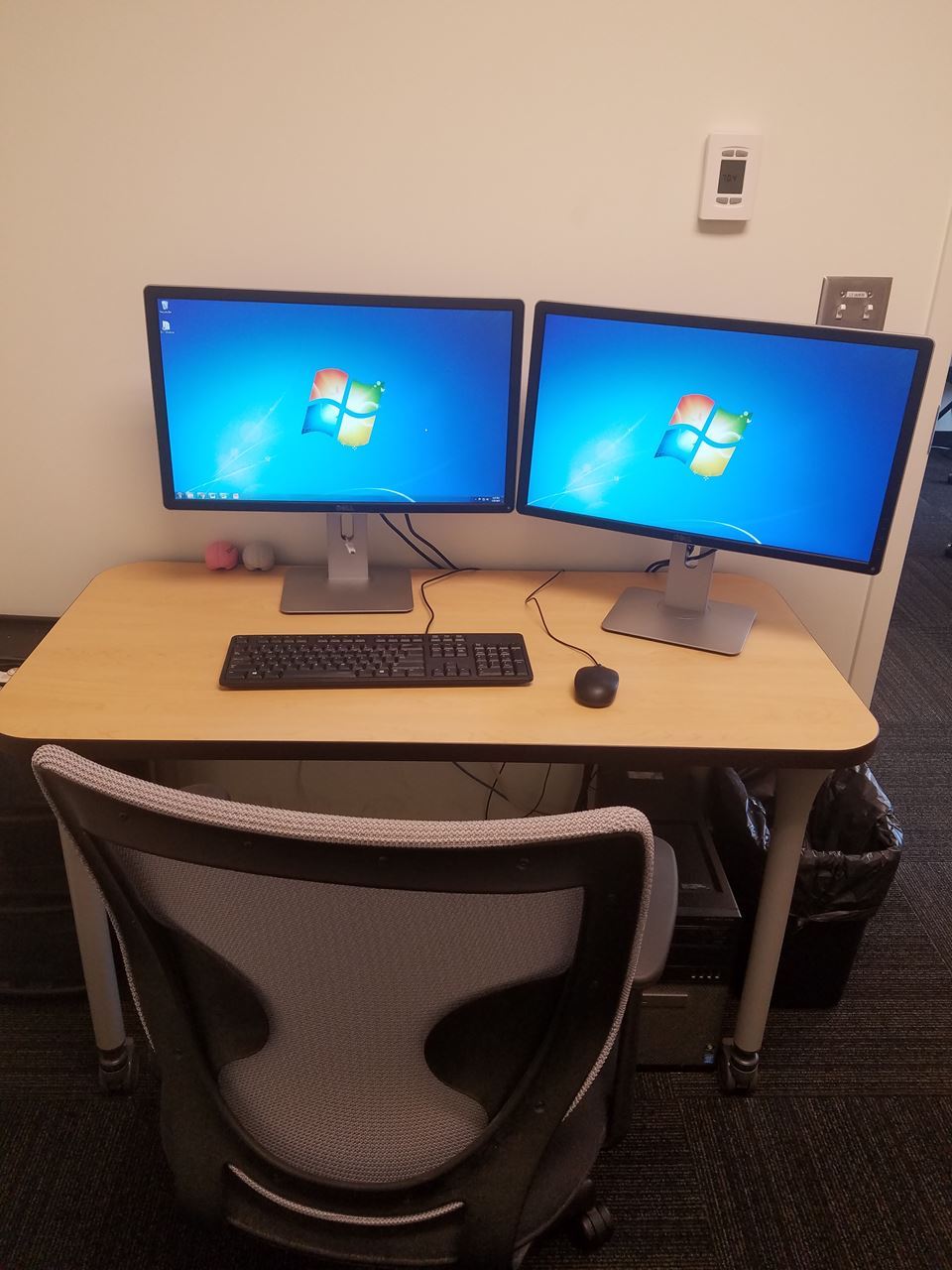 School name: The Ohio State University
School name: The Ohio State University
Type of school: Large, public research university
School locale: City – Columbus, OH
Classes you teach: Introduction to Psychology, Abnormal Psychology
Average class size: 65
What’s the best advice about teaching you’ve ever received?
Make eye contact with every student at least once during each class. It takes some practice, but it makes every student feel important and ensures that you are always thinking about teaching every student in the class and not just Hermione in the front row.
What book or article has shaped your work as a psychology teacher?
It’s not a book or article, but Crash Course! The videos are fantastic, interesting, and freely available. The videos cover most of the content of most Intro textbooks, students know exactly how long the videos take to watch, and they can pause and rewind or rewatch the videos whenever they want. I can assign my students to watch videos before they come to class and then we can spend the time in class putting that information to practical use!
Briefly tell us about your favorite lecture topic or course to teach.
Memory is my favorite lesson to teach in my flipped Introduction to Psychology course. Students complete a series of memory tasks that demonstrate concepts like the primacy effect and false memories. Then students give short presentations about how they would correct a layperson's misunderstanding about the fallibility of memory or where memories are stored in the brain, for example. Finally, after they have learned tips for memorizing information quickly, I show them what I tell them is my credit card number for just 15 seconds, and if they can memorize all the information, they get a prize. Every time I've done this, one student in each class has able to memorize the whole card.
 Briefly describe a favorite assignment or in-class activity.
Briefly describe a favorite assignment or in-class activity.
“Speed Reviewing,” which I modeled after speed dating. Students pick a concept on their study guide to briefly review on their own. Then they all walk around the room, introduce themselves to another student, and ask if that person knows the concept they reviewed. If yes, the student who was asked tries to explain it, and if they don’t already know the concept, then the student who asked about that concept explains. Then, they switch roles. After both students ask about their concepts, they thank each other and find new students to ask about their concept. I also walk around and participate in the activity, and students generally report the social pressure to sound smart in front of their peers is highly motivating.
What teaching and learning techniques work best for you?
I taught music before I taught psychology and I loved conducting because my students were completely in charge of actually making the music. If I conducted the start of a piece, but they weren’t paying attention, there was no sound; if I wanted them to play louder but they weren’t paying attention, nothing changed; and if students never practiced outside of rehearsal, I couldn’t play their parts for them. In fact, I never even made a sound on the podium while conducting. I now teach psychology, but I still feel more like a band director than a lecturer because in the same way I couldn’t play for my students, I can’t apply psychology for my students. There is no amount of me talking at my students that will allow them to practice implementing important applications of psychology in their own lives, so every class I direct activities that put my students in charge of their learning. For example, when my students go home for Thanksgiving, I want them to be able to refute myths their family members believe about mental illness, explain why correlations don’t prove causation, and demonstrate how someone should act differently after learning about implicit biases. So that is what we practice during class: students role play responding to questions laypeople ask about psychological disorders, they find articles in the media that conflate correlation and causation, and they take an implicit association task and write about policies the university could implement to reduce adverse effects of negative implicit associations on campus.
 What’s your workspace like?
What’s your workspace like?
Barren. I get distracted easily, so if there are lots of things on my desk or on the wall, I will not be nearly as productive. I even prefer having an office without a window!
Three words that best describe your teaching style.
Energetic, Engaging, and Empirical
What is your teaching philosophy in 8 words or fewer?
Non Nobis Solum Nati Sumus (Not unto ourselves alone are we born)
Tell us about a teaching disaster (or embarrassment) you’ve had and how you dealt with the situation.
While discussing consciousness, I pulled up CleverBot and I dictated what my students said so that we could chat with artificial intelligence and discuss what principles help us differentiate human language and thought from that of computers. However, CleverBot started hitting on my class, eventually asking “What are you wearing?” before I shut it down. It did spark an interesting discussion, though.
What is something your students would be surprised to learn about you?
My wife and I started dating at the end of our freshman year of high school, and because we were so young, our moms had to drive us to our first few dates. When we were planning to go to the same college together, our high school English teacher told us that he had never seen a couple last through college. He recommended that we shouldn’t go to the same small college together; so I bet him a steak dinner that we would still be dating two years into college. I won the bet and the steak was delicious. We continued dating and got married after 9 years together, and that same English teacher agreed to be the officiant at our wedding.
What are you currently reading for pleasure?
Thinking in Systems by Donella Meadows. It explains in accessible terms how properties of systems can keep institutions from changing quickly or how negative feedback loops can dramatically change relationship dynamics. It has applications in development, psychopathology, social psychology, university administrations, politics, etc. In short, reading this book feels like being escorted out of Plato’s Cave and realizing that you’ve been seeing only shadows before now.
What tech tool could you not live without?
I love using Google Docs! One of my favorite applications is for student-generated study guides. For several topics, I create a document with a bare-bones outline of concepts such as social psychology phenomena or brain regions, and then my students populate the document with descriptions and examples. Everyone participates, they generate far more examples than I could in the same amount of time, and the class gets to keep the document as a resource. It also allows me to correct misunderstandings in real time. For example, if a student writes an example of positive punishment under negative reinforcement, I can immediately find that student or ask another student to politely explain the difference.
What is your hallway chatter like? What do you talk to colleagues about most (whether or not it is related to teaching/school)?
Unfortunately, a lot of the hallway chatter is about how little time we graduate students have and that research, classes, clinical work, and teaching (and possibly even a personal life) are often difficult to balance. However, I am always down to talk about teaching and how teaching undergraduate courses in the 21st century must be qualitatively different from any previous time because of the availability and accessibility of information on the internet.
